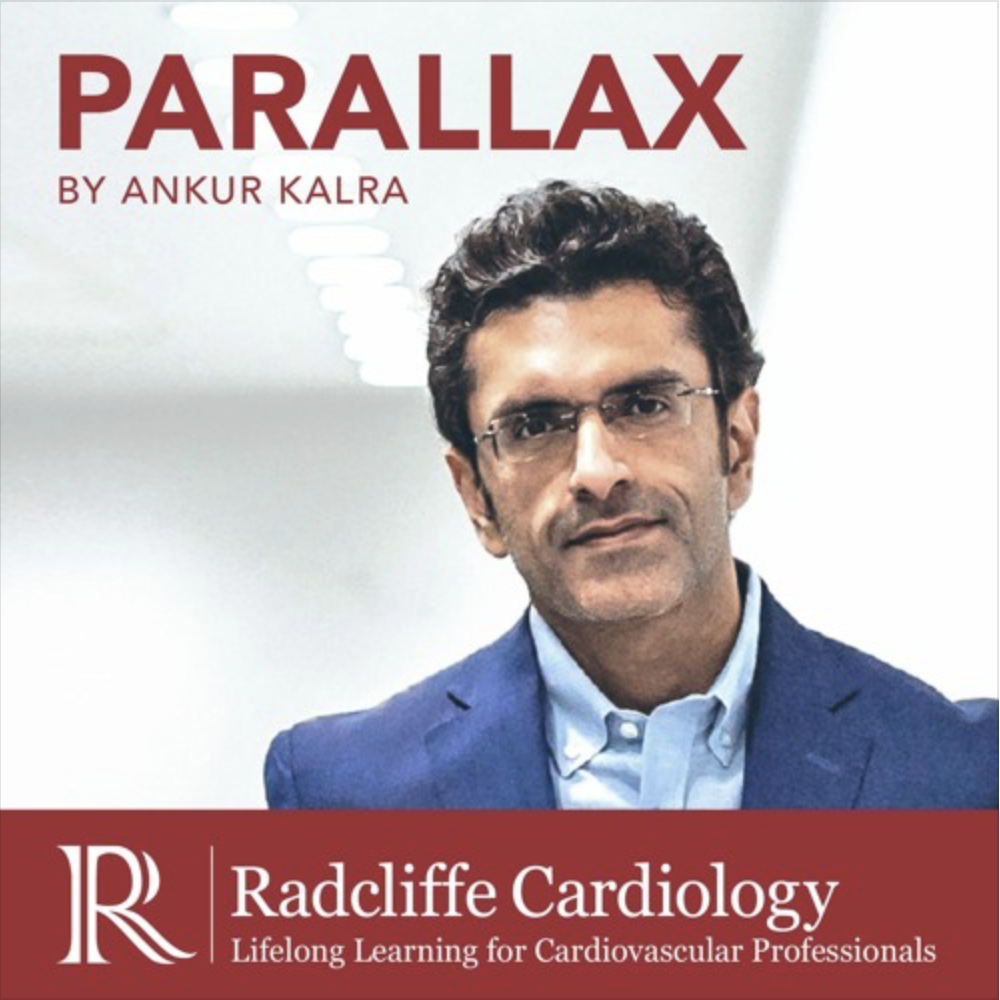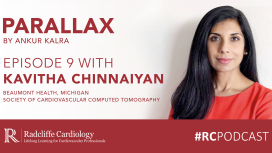
08: Diversity, Inclusion & Leadership: A Discussion With Madhav Swaminathan
Madhav Swaminathan joins Ankur Kalra for a dynamic conversation about diversity, inclusion and leadership. Madhav shares how, as President of large organisation like the American Society of Echocardiography, he works to create an inclusive platform with opportunities for individuals from diverse backgrounds.
Ankur and Madhav also discuss positive traits of leadership, why we should embrace failure and the importance of mentorship throughout all stages of one’s medical career. Send us your comments to this episode for Ankur to share in future episodes: pocast@radciffe-group.com. Guest @mswami001.
Hosted by @AnkurKalraMD. Produced by @RadcliffeCARDIO.
Read MoreRead Less

How do you nurture resilience in the midst of competition, envy and individualism? What is moral injury? Is the current healthcare landscape driving physicians to burnout? Are we too focused on data and study results? These are some of the questions discussed by Kavitah Chinnaiyan, MD, award winning author and Cardiologist and Director of Cardiac CT Research at Beaumont Health, MI, and host Ankur, in the first episode of this three-part series on burnout and resilience. Send us your thoughts to this episode for Ankur to share in future episodes: pocast@radciffe-group.com. Guest @ChinnaiyanMD.
Hosted by @AnkurKalraMD. Produced by @RadcliffeCARDIO.
Read More
Hosted by @AnkurKalraMD. Produced by @RadcliffeCARDIO.
All Episodes

Ankur is back with his second #AudioArticle! This week he spoke with Santiago Garcia from the Minneapolis Heart Institute about Santiago’s US Cardiology Review 13.1 article on the role of high-sensitivity cardiac troponin (hscTn) assays and their ability to rapidly rule in or rule out acute coronary syndrome (ACS) with improved sensitivity.
Chest pain is one of the most common reasons for an emergency room visit in the US, with almost 6 million ER visits annually, yet there is no consensus on how to compare the results from various hscTn assays. Tune in to hear Santiago outline the advantages and limitations of using hscTn as a standard biomarket to evaluate patients with suspected ACS in the ER.
Hosted by @AnkurKalraMD. Produced by @RadcliffeCardiology.
Read More
Chest pain is one of the most common reasons for an emergency room visit in the US, with almost 6 million ER visits annually, yet there is no consensus on how to compare the results from various hscTn assays. Tune in to hear Santiago outline the advantages and limitations of using hscTn as a standard biomarket to evaluate patients with suspected ACS in the ER.
Hosted by @AnkurKalraMD. Produced by @RadcliffeCardiology.

In our first episode, Ankur explains his vision for and inspiration to start ‘Parallax’, and speaks with Chad Kliger from Lenox Hill Hospital in New York about conduction abnormalities after transcatheter aortic valve replacement (TAVR/TAVI), a review article published in US Cardiology Review 13.1 Ankur and Chad look at conduction abnormalities after TAVR/TAVI with a focus on basic conduction system anatomy in relation to the aortic valve, the mechanism, incidence, predisposing factors for occurrence, impact on mortality and finally, proposed treatment algorithms for management. Hosted by @AnkurKalraMD. Produced by @RadcliffeCardiology.
Read More

In this inspiring conversation, Dr Anavekar and Dr Kalra discuss the education of postgraduate medical students and reflect on Dr Anavekar’s role as a Program Director. Dr Anavekar shares his motivations and the moral framework he uses to approach his responsibility towards his students.
Read More

In this stimulating and thought-provoking episode, Dr. Kalra and Dr. Anavekar delve into the topic of measuring success in medicine. Dr. Anavekar puts forward the argument that the ambiguous definition of academic achievement often results in damaging biases that have long-term repercussions on the medical field. As a program director, Dr. Anavekar believes that the number of published articles should not be the only or most crucial criterion for evaluating early-career faculty. He argues that it's important to also consider the "distance travelled" by candidates. Dr. Kalra raises pertinent questions about the practical implications of this approach, and Dr. Anavekar provides candid insights into his responsibilities.
Read More

Dr Mahmoudi and Dr Täuber teamed up to explore bullying in academic settings. Together with Dr Kalra they discuss why bullies thrive in such environments and the ways institutions enable such behaviour. Dr Täuber offers solutions and a critical overview of institutional narratives, while Dr Mahmoudi highlights the long-term effects on academic work and medicine. They call for action against toxic behaviour and for stakeholders to eliminate incentives for universities to support perpetrators.
Read More

In 2018, the loss of a friend to suicide compelled Dr Anavekar to embark on a profound journey of contemplative self-exploration. Now, he uses his experience to encourage and guide trainees to pose thought-provoking questions that challenge the status quo of the materialistic approach to medicine, ultimately leading to a more outcome-focused perspective.
What is the Global Cardiology University project? How does Dr Anavekar encourage trainees to re-examine their role in patient care? What is his advice to our listeners?
Read More
What is the Global Cardiology University project? How does Dr Anavekar encourage trainees to re-examine their role in patient care? What is his advice to our listeners?

In the latest episode of Parallax, Dr. Ankur Kalra invites Dr Vijay Rao, the Governor of the Indiana Chapter of the American College of Cardiology, to share his experience and insights with the audience.
As Dr Kalra asks Dr Rao about the ways in which early career faculty members can get involved with the organization at a state level. Dr Rao shares his insider tips and highlights key events where individuals can further their participation.
How can you get involved with your local ACC chapter? How can you improve your leadership skills? What is Dr Rao’s advice for our listeners?
Read More
As Dr Kalra asks Dr Rao about the ways in which early career faculty members can get involved with the organization at a state level. Dr Rao shares his insider tips and highlights key events where individuals can further their participation.
How can you get involved with your local ACC chapter? How can you improve your leadership skills? What is Dr Rao’s advice for our listeners?





